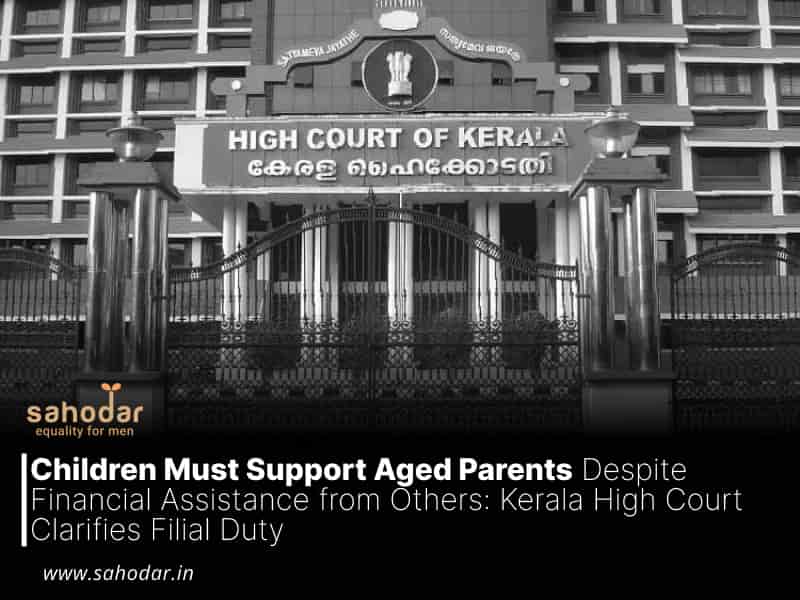The Kerala High Court recently ruled that receiving financial assistance from friends or relatives does not exempt children from their duty to maintain their elderly parents.
Justice Kauser Edappagath emphasized that filial duty is a fundamental responsibility rooted in morality, religion, and law. The Court noted that children, especially sons, bear a greater obligation to care for their aged parents, as reflected in various religious scriptures and legal provisions.
The Court stated, “If an elderly father or mother manages to sustain themselves with financial assistance from relatives or friends, it does not relieve the children of their duty to provide maintenance. Supporting aged parents is both a moral duty and a legal obligation of the son. Filial responsibility is a fundamental duty ingrained in morality, religion, and law. Various religious scriptures, cultural traditions, and legal provisions underscore that children, particularly sons, have a greater responsibility to care for and support their elderly parents.”
The Court issued the order in response to a writ petition filed by a 74-year-old father seeking maintenance from his children, as he was unable to support himself. The respondents, his well-settled sons employed in Kuwait, were born from his first marriage.
The petitioner divorced his first wife in 2013, citing allegations of an illicit relationship with his brother. He remarried in 2014 and currently resides with his second wife.
The respondents argued that the petitioner is engaged in a business abroad with his brother and earns an income from it.
The Family Court dismissed his petition, ruling that he had sufficient income to support himself. While rejecting the maintenance claim, the court also observed that since the petitioner had entered into a second marriage, he would not have done so without a source of income to sustain his wife.
The Court further noted that the respondents were well-settled in Kuwait and had adequate financial means to support their father.
The Court dismissed the respondents’ argument that the petitioner had been receiving money from his brother until 2018, clarifying that the financial assistance was for his daily expenses rather than a share in any business.
Furthermore, the Court held that the petitioner receiving some financial support from others to sustain himself and his second wife does not justify denying maintenance from his children.
Emphasizing the depth of the father-son relationship, the Court explained that just as parents support their children throughout their lives, children have a fundamental duty to care for their parents when they grow old and become dependent.
Court stated, “Just as a father once cared for his son, it is only fair that the son reciprocates when his father is old and in need. This responsibility is not only a moral and ethical obligation but also a legal duty. Society thrives when its elderly are treated with dignity and care. Neglecting an aged father not only leads to emotional distress but also weakens the very fabric of society.”
The Court elaborated on a son’s duty to care for his elderly parents by citing religious texts, including Hindu Dharma, Manusmriti, the Quran, the Bible, and Buddhist teachings.
It emphasized that a son’s obligation to support his aged parents is established under various legal provisions. Referring to Section 4 of the Maintenance and Welfare of Parents and Senior Citizens Act, the Court noted that a son can be legally required to provide maintenance to his elderly father. It also cited Section 20 of the Hindu Adoptions and Maintenance Act, which mandates that a son must support his aged and dependent parents. Additionally, the Court referenced Section 125(1) of the CrPC and Section 144(d) of the BNSS, which provide for maintenance of parents who are unable to sustain themselves.
Accordingly, the Court ruled that the respondents, being financially stable and well-employed, are both legally and morally obligated to maintain their 74-year-old father.
Consequently, the Court overturned the Family Court’s decision denying maintenance. It further directed the respondents to provide their father with a monthly maintenance payment of ₹20,000.

